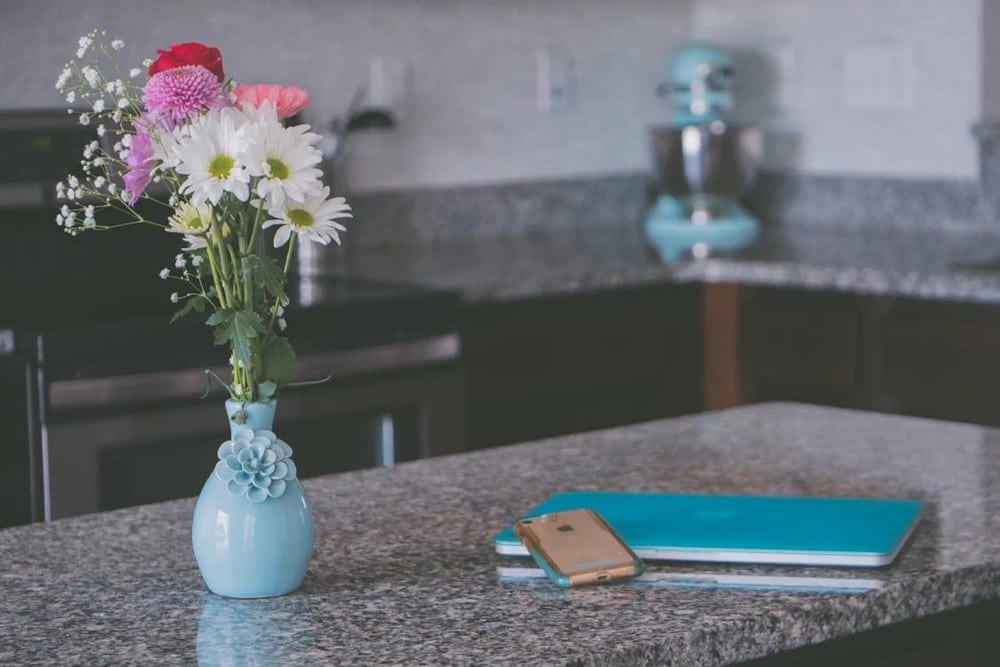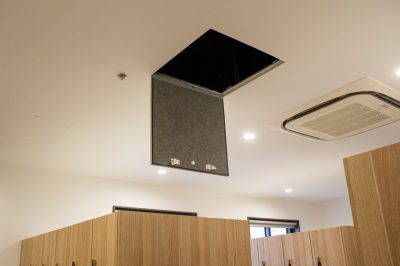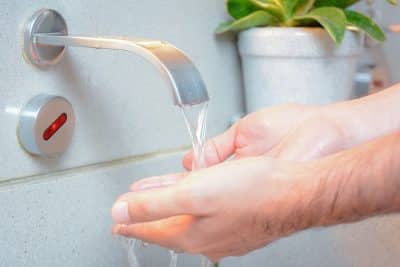
Kitchen countertops play a vital role in both the functionality and aesthetics of your culinary space. While most homeowners understand the importance of durability and heat resistance, there are many other factors to consider when selecting the right kitchen countertop. From choosing the material that best suits your specific needs to understanding how different options can impact your home’s value, picking the perfect countertop can be a complex yet essential decision.
Countertop Materials: Pros and Cons
Quartz Countertops: Quartz is one of the most popular materials for countertops due to its high resistance to scratches, stains, and impacts. As a composite material made from natural quartz and resins, it offers a wide range of colors and finishes. It’s ideal for busy families who want a low-maintenance material. Additionally, quartz does not require periodic sealing, unlike many natural stones.
Granite Countertops: Granite is another popular material due to its durability and unique natural appearance, with each slab being different. Granite countertops are heat and scratch-resistant, making them ideal for kitchens with heavy use. However, granite countertops require periodic sealing to prevent staining and maintain their shine. Despite the need for occasional maintenance, granite countertops are highly valued for their ability to add long-term value and elegance to any kitchen space.
Marble Countertops: Marble is prized for its classic beauty and unmatched elegance, but it is less durable than granite or quartz. It is more susceptible to scratches and stains, especially from acidic foods like lemons or wine. Marble also requires regular maintenance and special care to preserve its appearance.
Wood Countertops: Wood countertops, such as those made from oak or walnut, add warmth and a sense of comfort to your kitchen. However, they are less resistant to heat and moisture and require frequent maintenance, including sealing and treatment to prevent warping and bacterial growth.
Concrete Countertops: Concrete offers a modern and industrial look, being highly customizable with different pigments and textures. It is heat and scratch-resistant but can be prone to cracking over time and requires periodic sealing to prevent staining.
Stainless Steel Countertops: Stainless steel is the preferred choice in commercial kitchens due to its durability and ease of cleaning. It is heat and stain-resistant but can suffer from scratches and may feel cold in a home kitchen setting.
Functionality and Adaptability
The functionality of a kitchen countertop largely depends on how you plan to use the space. If you’re an avid cook who frequently uses heavy utensils, a durable material like granite or quartz is essential. If your kitchen is more of a social and entertainment space, you might opt for a material that brings a stronger aesthetic element, such as marble or wood.
Sink Compatibility
The type of sink you plan to install significantly influences your countertop choice. Quartz and granite countertops are ideal for under-mount sinks, offering a seamless transition between sink and countertop, making cleaning easier and more efficient. If you prefer an integrated sink, materials like concrete or solid surfaces are more suitable, providing a uniform and modern look.
Aesthetics and Style
The aesthetics of the kitchen countertop are crucial for the overall style cohesion of your kitchen. For example:
- Industrial Style: For an industrial look, concrete or stainless steel countertops are excellent choices, offering a raw and modern finish.
- Minimalist Style: Quartz countertops with a glossy or matte finish are ideal for a minimalist kitchen, offering a clean and refined appearance.
- Rustic Style: Wood or natural stone countertops, such as warm-toned granite, perfectly complement a rustic or farmhouse design.
Long-Term Maintenance and Durability
Maintenance is a key aspect when choosing a kitchen countertop, especially if you have a busy lifestyle. Materials like quartz and solid surfaces are relatively easy to maintain, requiring only regular cleaning with soap and water. On the other hand, natural materials like marble and wood require more careful upkeep, including periodic sealing and protection from acidic or wet substances.
Additional Considerations: Sustainability and Environmental Impact
As environmental concerns become increasingly important, many homeowners are looking for sustainable countertop materials. Eco-friendly options include recycled wood countertops, concrete with recycled aggregates, or even composite materials made from recycled waste. Additionally, some brands offer quartz countertops produced using waste-reduction and water-saving technologies.
Cost and Value
Cost is always a major factor in deciding on a kitchen countertop. Materials like marble and quartz are more expensive but offer durability and aesthetic value that can increase your home’s resale value. On the other hand, more affordable materials, such as laminate or certain types of concrete, can save money upfront but may require more frequent replacement or maintenance.
Conclusion
Choosing the ideal kitchen countertop is not just about aesthetics but also about functionality, durability, and maintenance. Whether your priority is wear resistance, sophisticated visual appeal, or an eco-friendly material, the right option for you should combine all these elements to create a kitchen space that meets your daily needs and reflects your personal style. By investing in the right material, you ensure that your kitchen remains not only beautiful but also functional and durable for many years to come.








